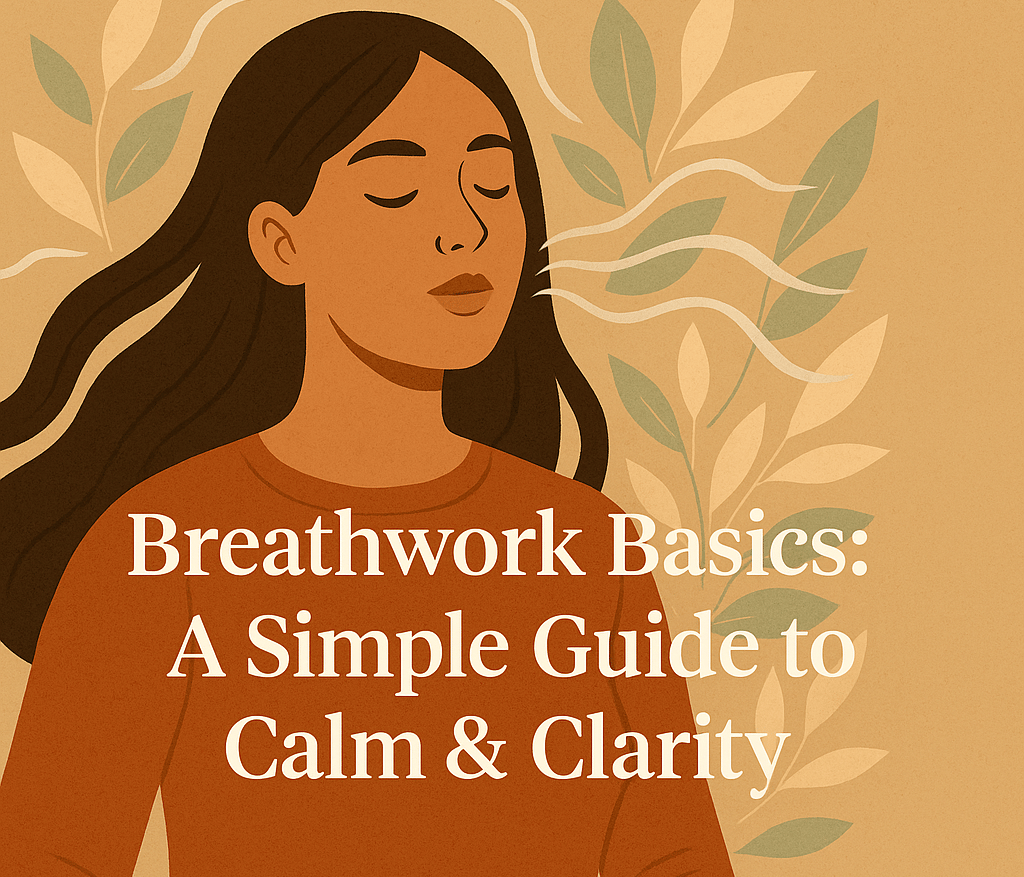Breathwork Basics: A Simple Guide to Calm & Clarity
Last updated: April 3rd
Written by: Justine Wilson


Ever Catch Yourself Holding Your Breath Without Realizing It?
You’re mid-task, slightly tense, and suddenly you notice—you haven’t taken a deep breath in ages. In today’s fast-paced world, shallow breathing has become the norm. But reconnecting with your breath could be the simplest, most powerful tool for calm, focus, and emotional balance.
A few weeks ago, I started exploring breathwork as a way to reset between work and home life. It’s now one of the most grounding rituals in my day—and it takes less than five minutes.
Why Breathwork Is Becoming a Go-To Wellness Tool
More people are feeling overwhelmed by stress, anxiety, and constant stimulation. Unlike complicated wellness routines, breathwork is free, accessible, and can be done anywhere. It taps into your body’s natural calming system and helps you shift your state almost instantly.
You might have wondered whether something as simple as breathing can really change how you feel, or how to even begin without feeling awkward. The answer is yes—and it’s easier than you think.
What Breathwork Can Do for You
Breathwork helps regulate the nervous system, shifting you out of fight-or-flight mode and into a calmer, more balanced state. It improves oxygen flow, which boosts energy and focus. It’s also a surprisingly effective emotional reset, helping reduce anxiety and tension almost on command.
How to Start a Simple Breathwork Practice
Begin by setting aside just a few minutes in a quiet space. Sit or lie down comfortably, and close your eyes if that feels right. One of the easiest methods to start with is box breathing: inhale for four counts, hold for four, exhale for four, and hold again for four. Repeat this for a few minutes, letting your body relax more with each round.
If counting feels distracting, try a gentle rhythm instead—breathe in deeply through your nose, then slowly out through your mouth. Focus on the sensation of the air moving through your body. You may notice your shoulders drop, your jaw unclench, and your mind slow down. That’s your nervous system responding.
Try practicing breathwork before sleep, during a break, or when you notice yourself feeling overwhelmed. The key is to be consistent, even if it’s just for a minute or two each day. Like any habit, it becomes more natural the more you do it.
Ready to Breathe More Intentionally?
Subscribe to our newsletter for calming breathwork guides, audio practices, and weekly stress relief tips from wellness experts.
Newsletter
Subscribe to our health and wellness newsletter where we share healthy living tips, news, and wellness ideas.